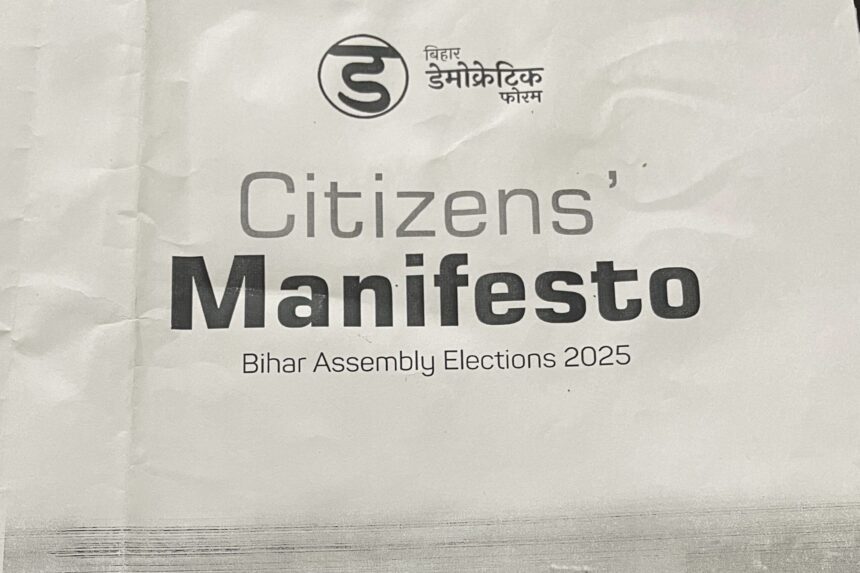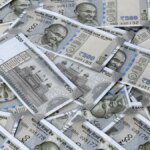Many believe that in recent years, democratic values have been steadily eroding, constitutional rights and freedoms are being curtailed, and systematic efforts are being made to benefit politicians and wealthy elites. It is in response to these growing concerns that the Bihar Democratic Forum (BDF) has emerged, a civil initiative dedicated to reviving democratic values and reinforcing secular, constitutional ideals in the state.
The forum argues that Bihar’s development failures are not merely administrative but deeply moral and political, reflecting a lack of will to ensure justice, equality, and inclusion for all. It therefore aims to unite diverse sections of society, including farmers, workers, students, women, migrants, and civil society members, on a single platform.
The BDF’s guiding philosophy rests on the belief that “democracy must be people-driven, not party-driven.” Rather than functioning like a political outfit, it acts as a civic counterforce, a movement rooted in awareness, participation, and accountability.
The forum has brought together socio-religious groups representing most minority communities, including Muslims, Sikhs, Christians, and Buddhists, along with NGOs such as Bharat Jodo Abhiyan, Loktantrik Jan Pahal, Bihar Vikas Samiti, Nari Gunjan, Kosi Navnirman Manch, NAPM, and several social activists to ensure better coordination and cooperation in its efforts.
The Forum has been conducting voter education drives, workshops on documentation and rights, and community discussions to empower citizens to claim their constitutional entitlements. It also emphasizes the need to bridge divisions along caste, religion, and class lines, believing that communal harmony is the foundation of true progress.
What makes the Bihar Democratic Forum particularly distinctive is its focus on civil society leadership and knowledge-based activism. It does not seek power but aims to create pressure for better governance by mobilizing people around real issues, from unemployment and inflation to education and women’s safety.
“Upcoming state election is not only crucial for Bihar but pivotal for the entire nation; the outcome will shape the future of Indian democracy and define the direction of our polity,” said Dr. Abbas Musthafa, the convenor of the Bihar Democratic Forum.
He emphasized the urgent need for collective civic engagement, saying, “At this juncture, we must ask ourselves what our responsibility is, and how we can contribute meaningfully. Civil society must actively participate in the process, educate, and guide the masses for a better future for our state.”
He called the educated people the “mute spectators,” referring to the indifference of the educated class, observing that “in this vacuum, unqualified and self-serving individuals take the lead and influence outcomes,” stressing that “for real change, this attitude of our educated class must change first.”
“They should think positively, distinguish between emotional and real politics, and educate voters accordingly. Politics is not limited to casting a vote — it’s about influencing policies. We must identify problems, discuss them, and focus on designing and implementing solutions,” he said.
Calling for humility and unity, he said, “We must reconnect with people, earn their trust, and guide them with wisdom.”
He noted that we often dream of a miraculous leader who will transform everything overnight, but real transformation will come only when we “build a vibrant, active civil society, one that stands firm in adversity, united by shared purpose. This demands sincerity, dedication, and the willingness to work for the greater good.”
“Today, everyone is aware of the current political situation. We may not have a perfect choice, but democracy gives us the power of participation, and we must exercise that power responsibly by choosing the lesser harm,” he said, urging citizens to increase voter turnout as encouraged by the Election Commission and to minimise vote wastage by educating voters and discouraging divisions caused by “dummy candidates.”
The Forum has already begun setting up local committees to document cases of migration and joblessness, preparing a citizens’ manifesto to highlight grassroots concerns before the 2025 elections, and collaborating with academics and activists to monitor government performance on welfare schemes.
As Bihar approaches another election season, the Forum’s call for unity and justice resonates strongly across the state. For many, it represents not just a political intervention but a moral one, an effort to reclaim democracy from the ground up. By bringing together ordinary citizens and civil society actors, the Bihar Democratic Forum is redefining what participatory democracy can mean in one of India’s most politically conscious yet economically neglected regions.
Jamaat-e-Islami Hind Bihar state president Rizwan Ahmed Islahi said the upcoming Bihar Assembly elections hold special importance, not only for the state but for the entire country.
“The importance of the Bihar elections is much greater; its impact extends across the whole nation. Understand that the government formed now will mark a decisive turning point,” he said.
He pointed out, “The question is which direction Bihar will take. The people, the voters of Bihar, have a major role in determining that direction, and because of this, these elections are of great importance.”
Islahi asserted that voters should reject “those parties or people who spread hatred, who work more for their personal interests than for the development of Bihar. Which party that is, the voters will decide.”
He also pointed out the grave condition of education, unemployment, and public welfare in Bihar.
“In terms of education and economy, the situation is extremely poor. There are serious issues of unemployment, health, and law and order, these are the real problems of the common people,” he said, adding, “The party that gives attention to these issues will get the people’s votes, not those who ignore them.”
On Muslim representation, Islahi said the Muslim population deserves fair political rights.
He accused that among the three main alliances, Muslim candidates have not been fielded in proportion to their population, which he said is “unfortunate.”
“Very few Muslims have been given tickets. When Muslims are not given representation according to their numbers, how can anyone claim to be speaking for their rights? Who will raise their voice? Very few Muslims have been given a chance, this is deeply disappointing,” questioned Islahi.
The post Civil society steps up: Bihar Democratic Forum leads people’s call to reclaim democracy appeared first on Maktoob media.










